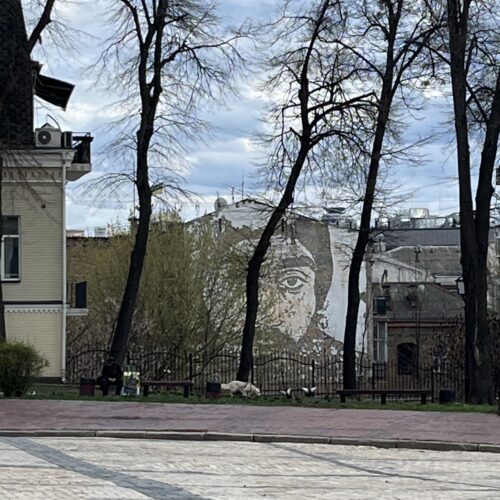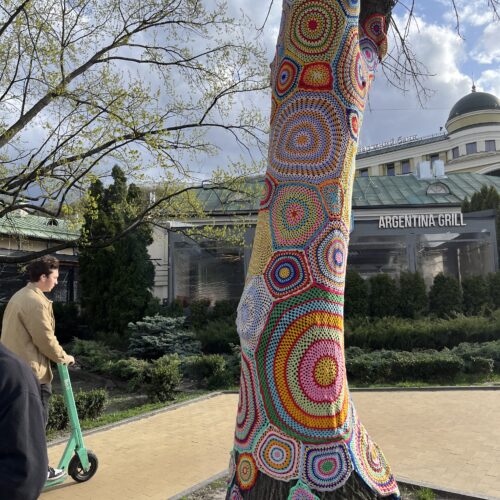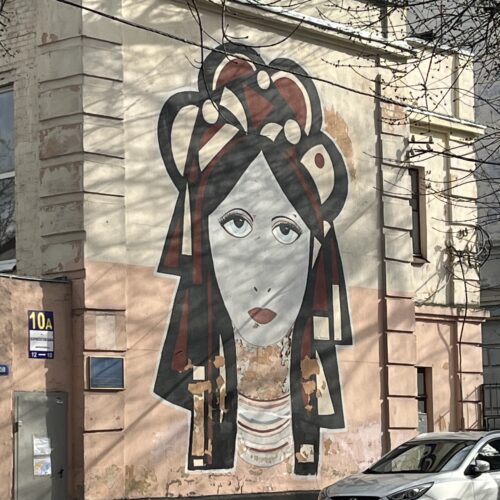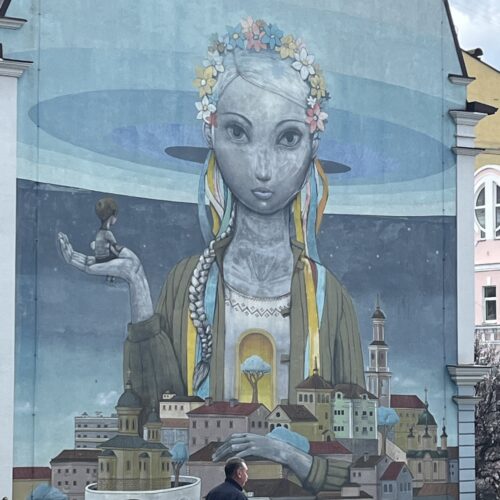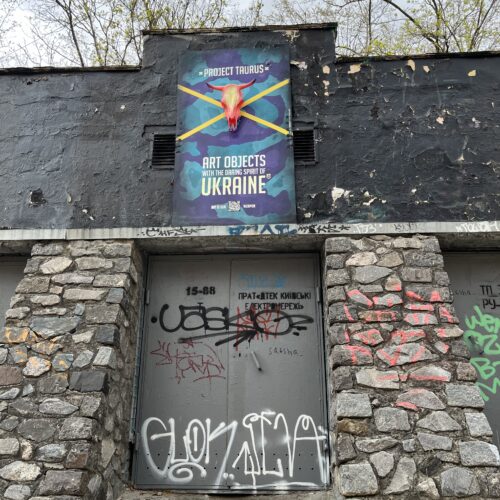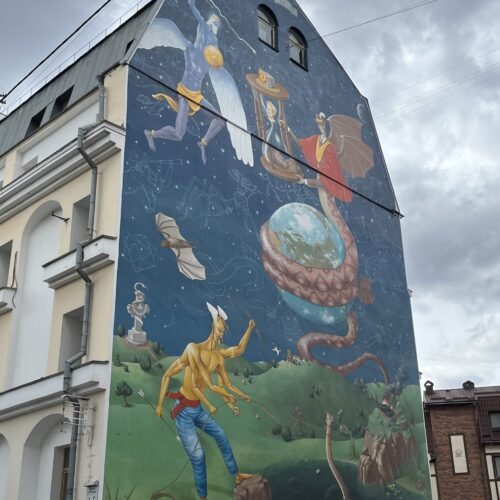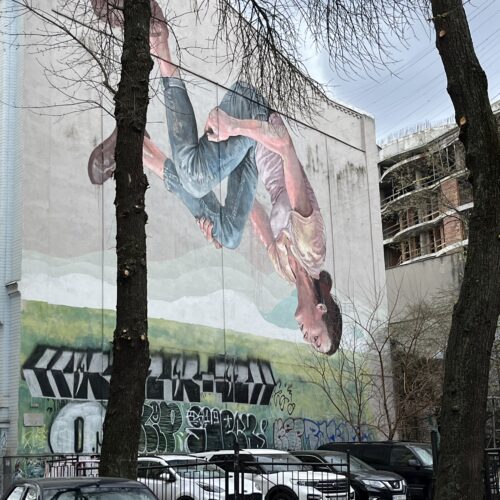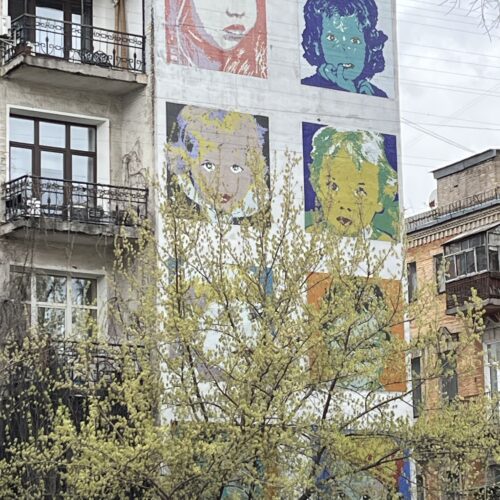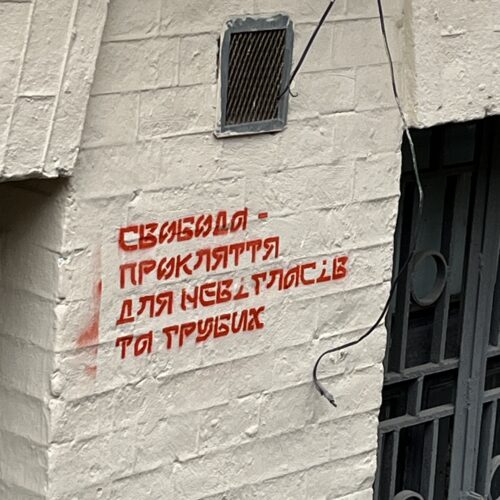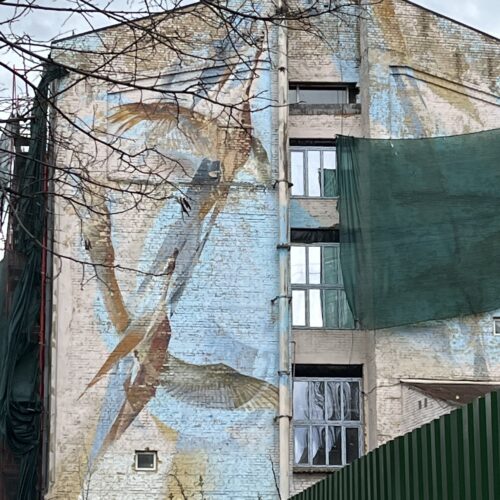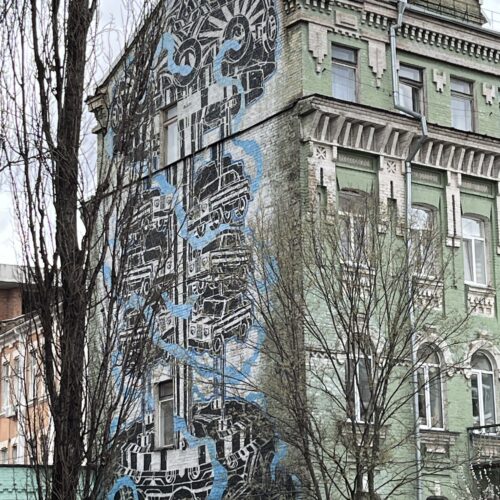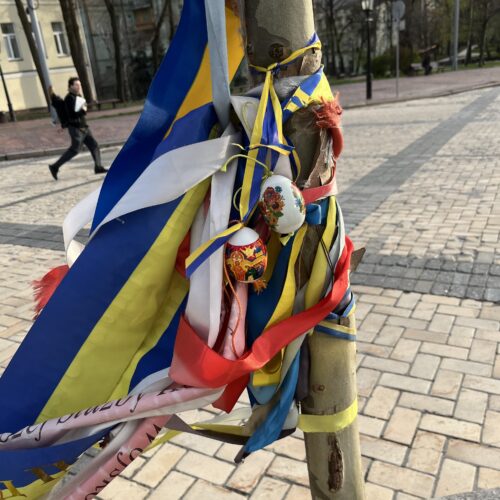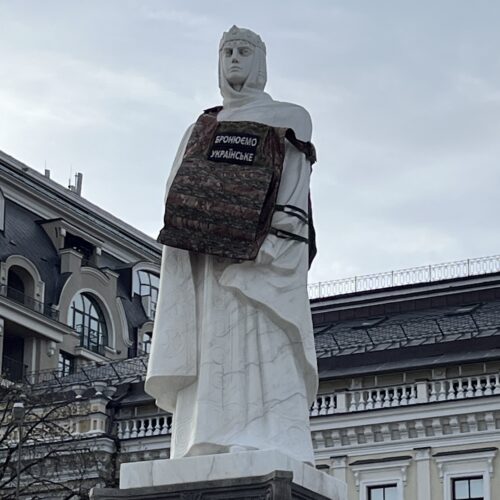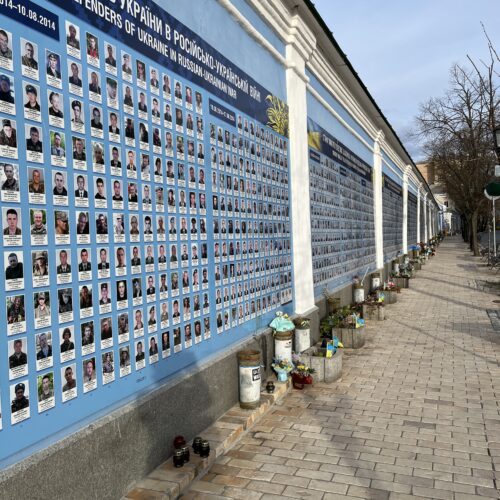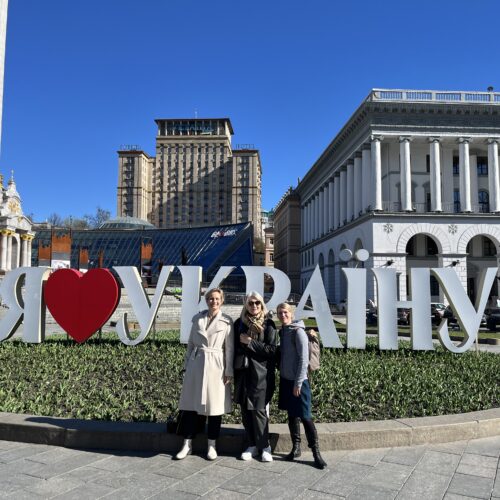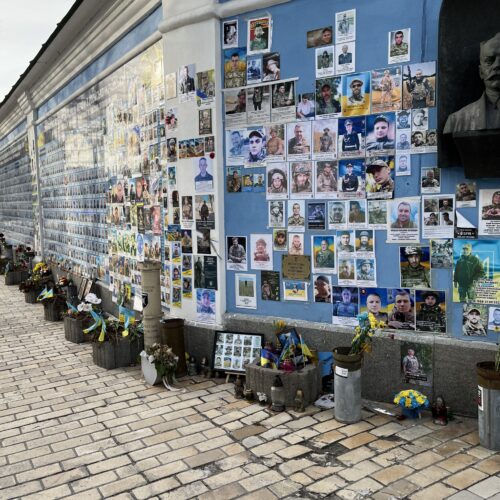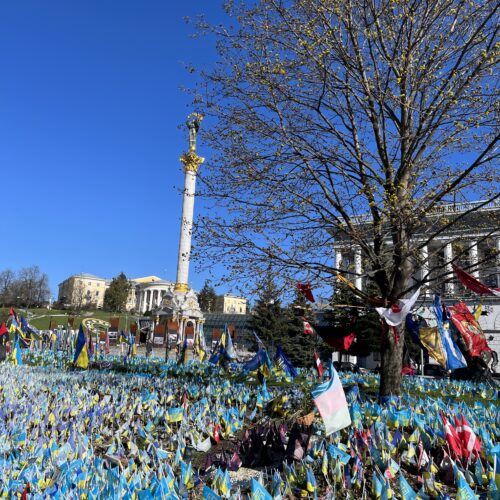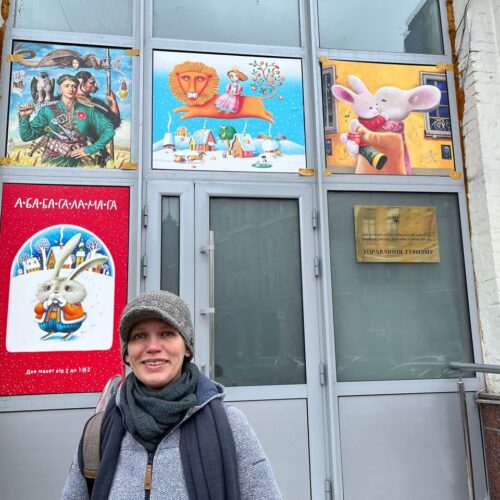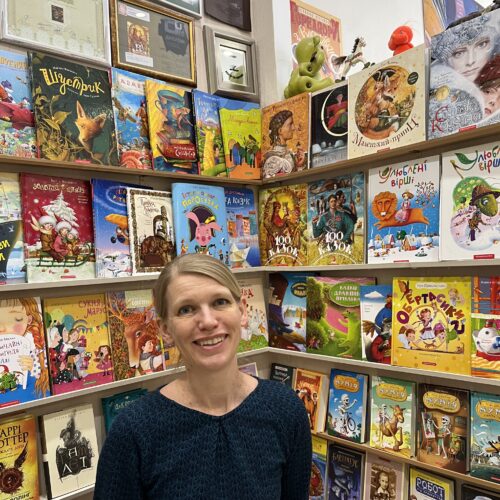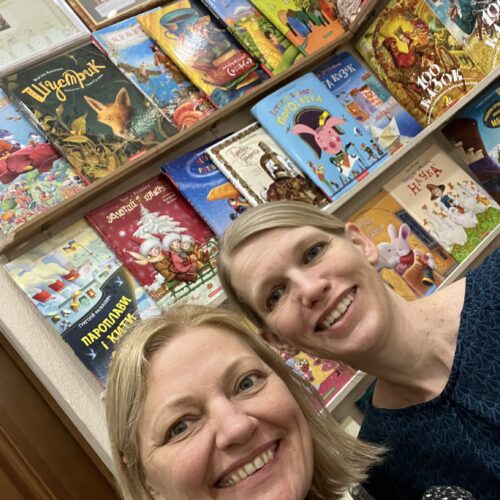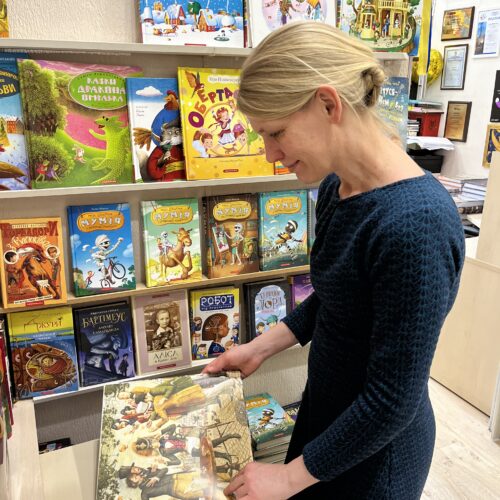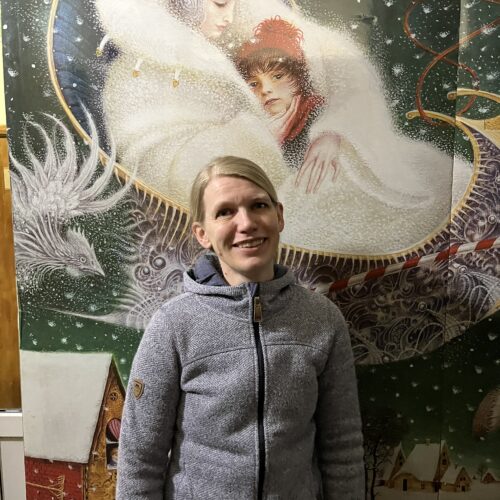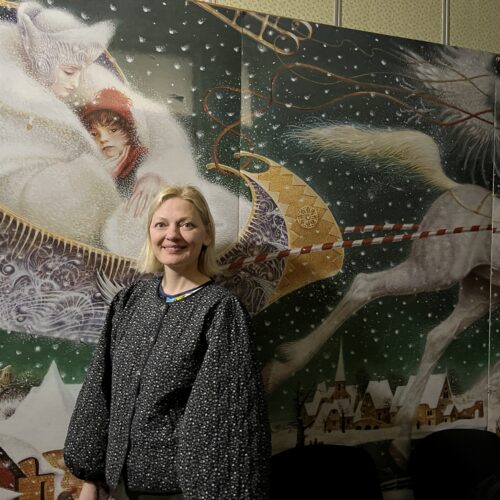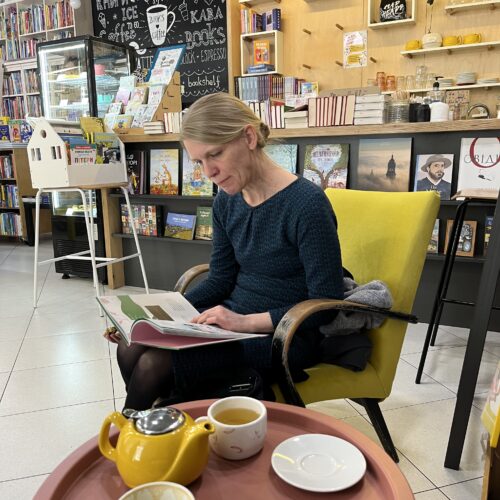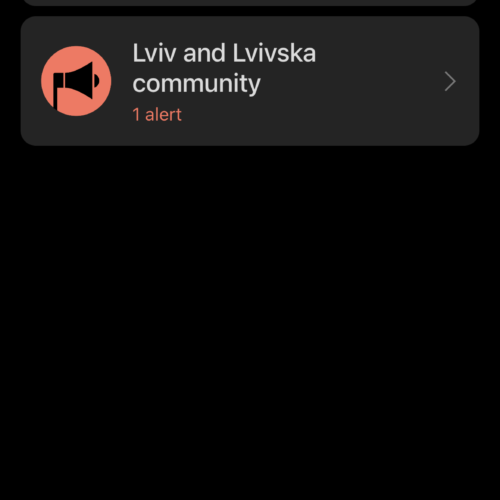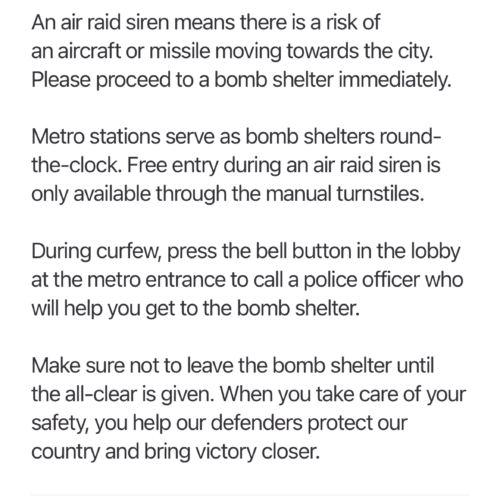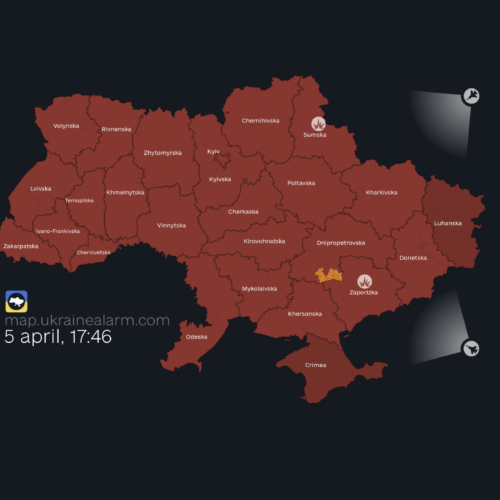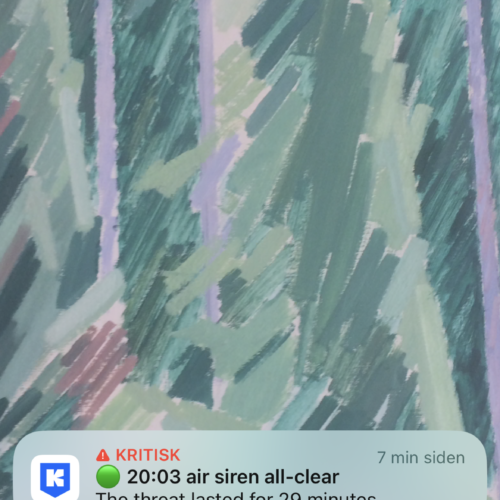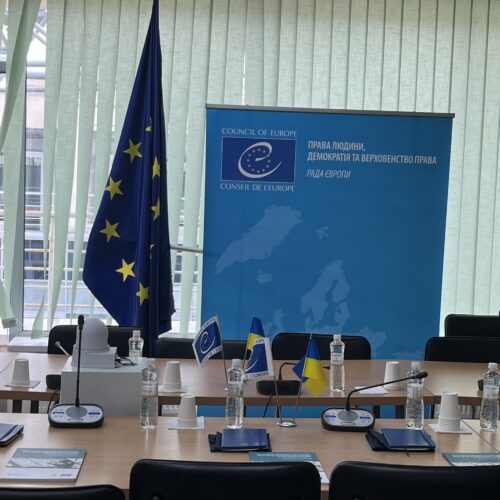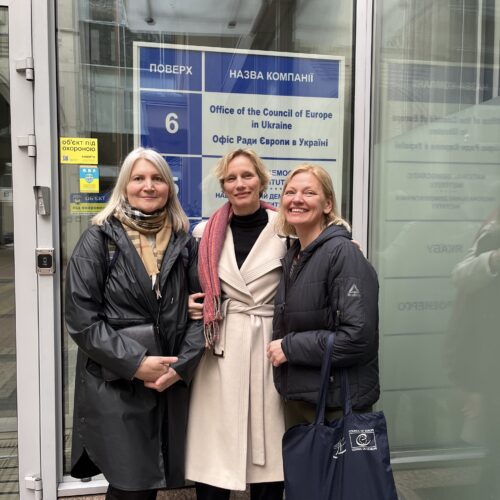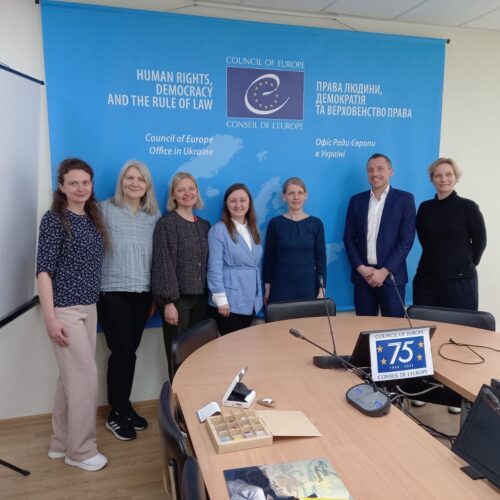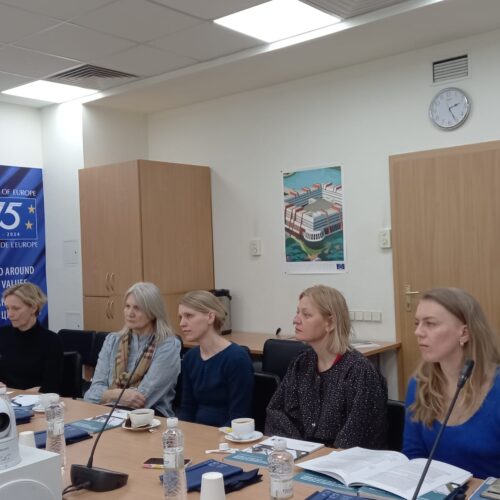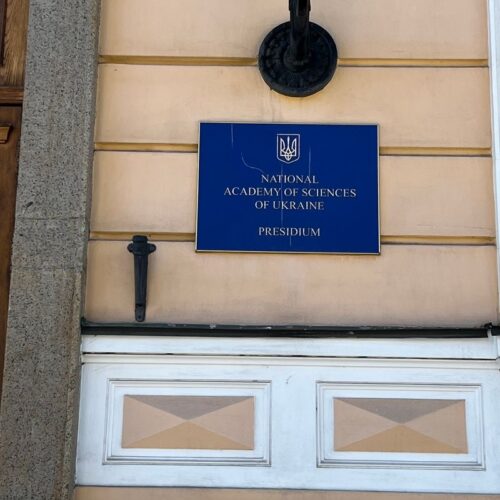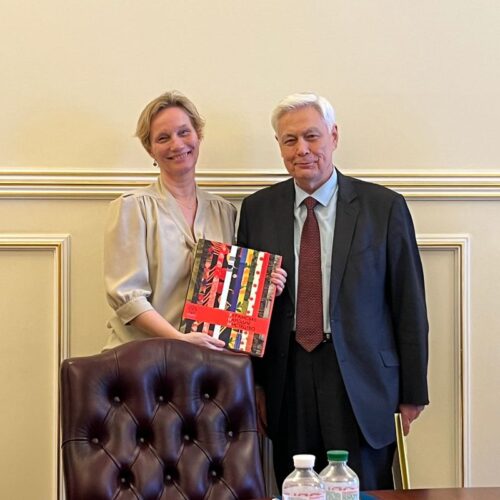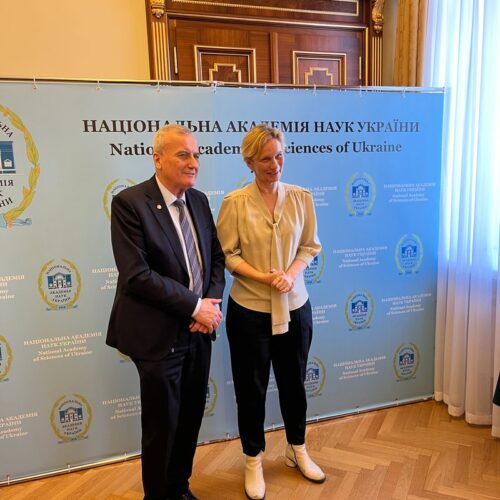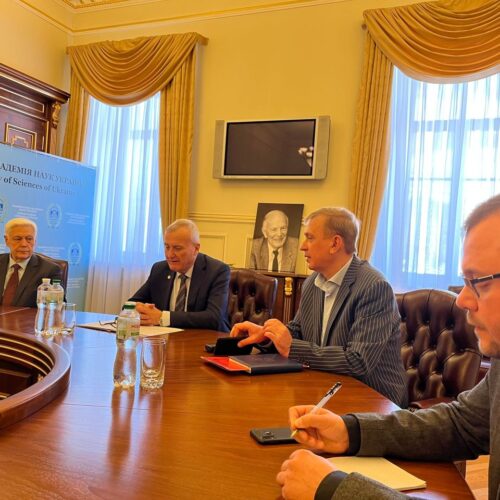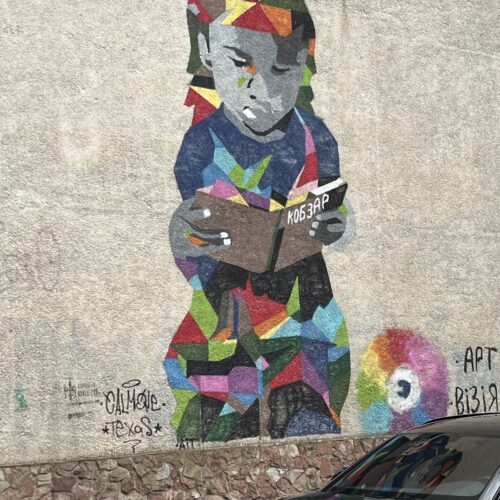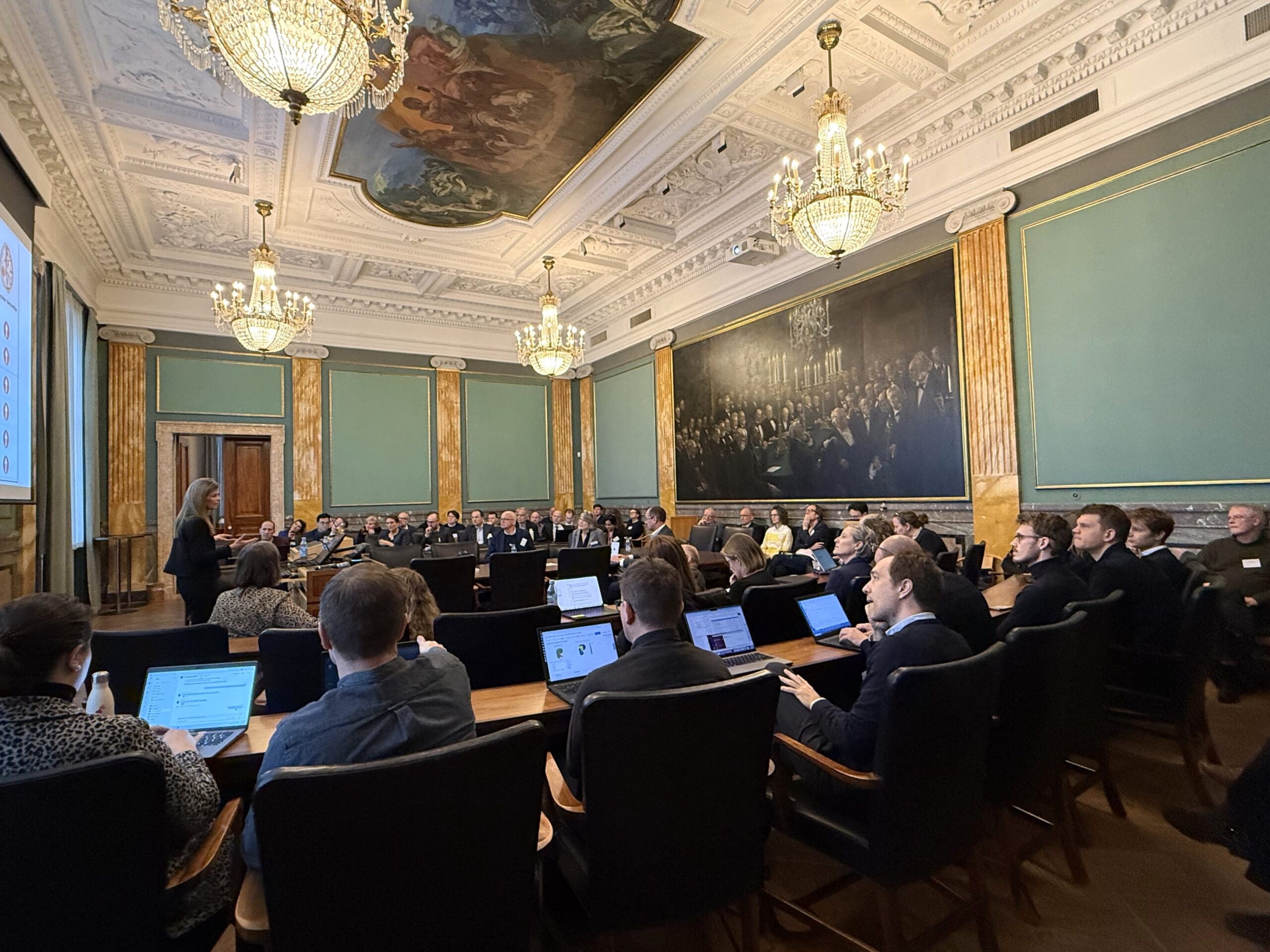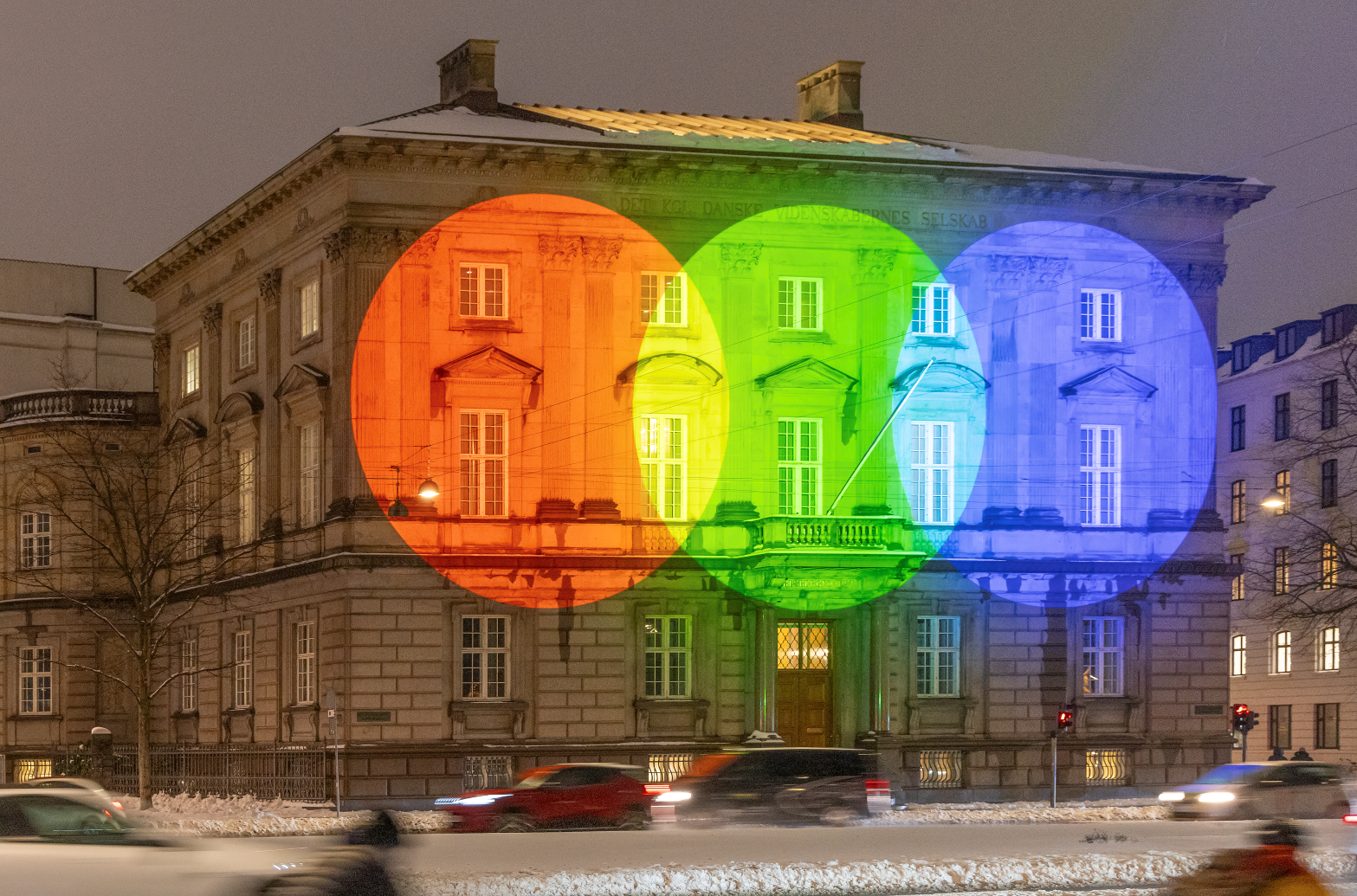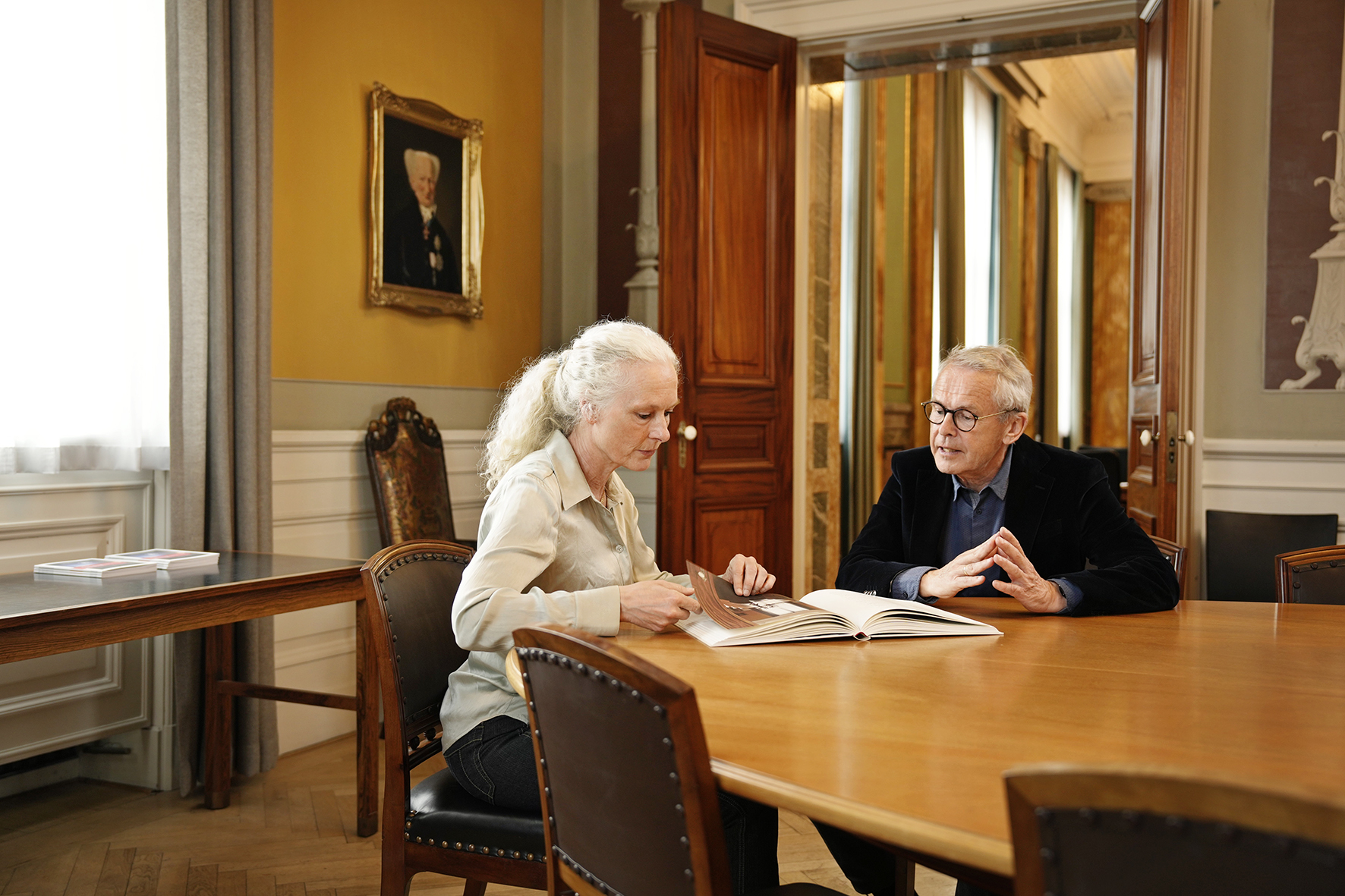Rejsedagbog fra Ukraine: Kapitel 2
Besøg på det ukrainske videnskabsakademi, Europarådets kontor i Kyiv, børnebogsforlag og mere
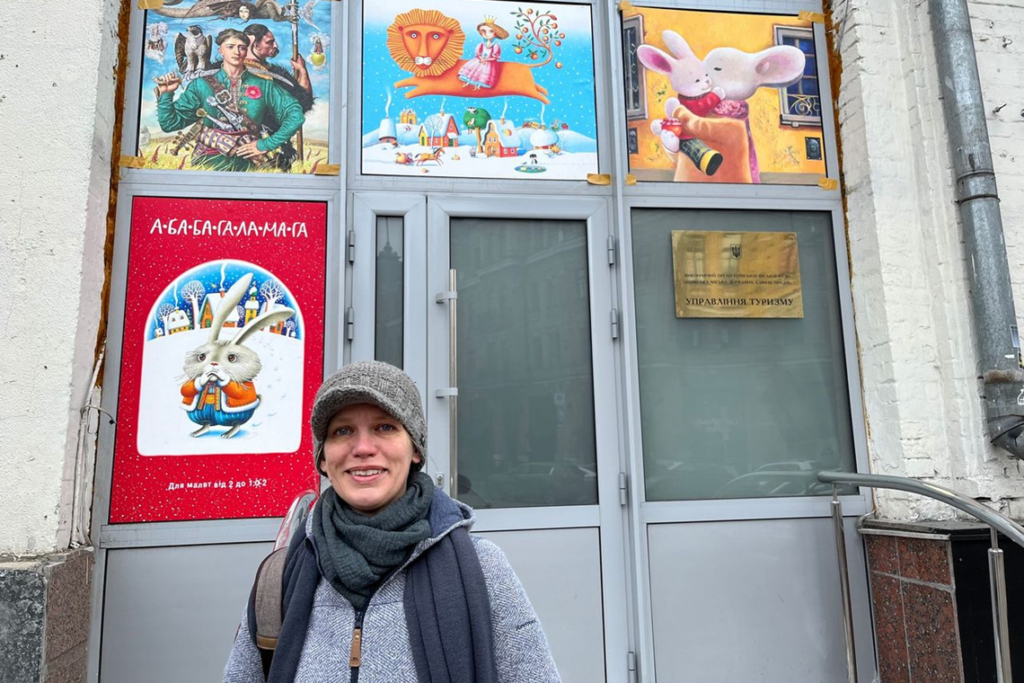
I begyndelsen af april rejste en delegation af fire forskere i regi af Videnskabernes Selskab til et krigsramt Ukraine, hvor de bl.a. besøgte flere af landets store universiteter. De fire forskere er præsident for Videnskabernes Selskab Marie-Louise Nosch, DUA-medlem Birgitte Pristed, Inga Kapustian og Nadiia Pavlyk. Mød dem her, i 2. kapitel af en miniserie og dagbog over deres rejse.
Fotos: medmindre andet nævnes, er fotos taget af de delegerede
I dette kapitel skal vi bl.a. høre om deres besøg på det Ukrainske Videnskabsakademi (NAS) og på Europarådets kontor i Kyiv. Vi skal også høre om besøg på børnebogsforlag i relation til Nadiia Pavlyk og Birgitte Beck Pristeds forskningsprojekt PUBLISH, ligesom vi skal høre om andre tanker og perspektiver, turen affødte.
Hver uge i maj udkommer et nyt delkapitel fra rejsedagbogen.
*Teksten i serien er forfattet på engelsk og er skrevet af forskerne selv.
The National Academy of Ukraine is the country’s largest and most prestigious research institution with ca. 25,000 staff laboratories, institutes, libraries and botanical gardens. Since February 2022, the Royal Danish Academy of Sciences and Letters has been in contact and coordinated help with NAS. It was their president, the physicist Anatoly Zagorodny, who first alerted us to Russia’s systematic destruction of Ukraine’s universities and scientific research infrastructure. Since then, we have collaborated with the presidents of the scientific academies of the USA, Germany, Great Britain and Poland on an action plan for Ukraine’s scientific present and future: scholarships for displaced researchers, aid for infrastructure and reconstruction, free digital access to journals, to focus on that part of the physical reconstruction must be directed towards science and university teaching.
In the beautiful Academy building, we meet Academy President Anatoly Zagorodny and Vice President for the Social Sciences and Humanities Professor and former ambassador Serhii Pyrozhkov. President Zagorodny acknowledged Denmark’s support, emphasizing the Academy’s current focus on research and developments aimed at strengthening the nation’s defense capability, security, and social sciences and humanities for Ukraine’s post-war revival. We reported on ongoing networking activities between Danish and Ukrainian scholars at the Royal Danish Academy of Sciences and Letters and about new Danish-Ukranian research projects.
[See pictures below, ed.]
Visit to the Council of Europe Office in Kyiv. Perspectives on research on Ukrainian youth in Ukraine and displaced children
Inspiring meeting on April 3rd with the Council of Europe in Ukraine and the Danish-Ukrainian science delegation. We discussed the excellent use of research-based evidence in the Council of Europe and the conditions of science; academic freedom; preservation of cultural heritage; knowledge-based society; the need to rebuild science institutions in Ukraine and their integration in Europe; and the inspiring “Youth for Democracy in Ukraine” project.
Erlend Falch, Deputy Head of the Council of Europe Office in Ukraine, presented the current Action Plan of the Council of Europe for Ukraine “Resilience, Recovery and Reconstruction” 2023-2026. His team is implementing no less than 27 projects, including civic participation, IDP rights, youth policy and youth work, combating violence against women, protecting children’s rights, anti-discrimination, and rights of national minorities. Erlend Falch emphasized the role of the Register of Damage for Ukraine (RD4U) and the opening of its new office in Kyiv. The office will help the Register raise awareness amongst various stakeholders within Ukraine, including regional and local authorities, businesses, civil society organizations, and the general public.
Olena Chernykh, Senior Project Officer, presented how the project “Youth for Democracy in Ukraine” contributes to the development of youth policy and youth work in Ukraine in time of war by mapping the needs and series of training programs on social cohesion, trauma-informed youth work, non-formal education. It applies an evidence-based approach to all activities by developing and conducting research on the needs and challenges of youth centres and spaces, youth councils, and youth policymakers working with young people under war conditions.
Nadiia Pavlyk, a member of the European Pool of Youth Researchers, expert of the Project, shared her experience of co-operation with the Council of Europe and her recent contribution to the study on new occupational standard “Youth Worker”, the mapping of formal education practices in the field of youth work and the Collection of youth work experience in Ukraine in time of aggression of the Russian Federation.
Erlend Falch as described the “Comprehensive assessment of the сhild-friendly justice system in Ukraine”, developed at the request of the Ministry of Justice of Ukraine and the Interagency Council on Child-Friendly Justice. The assessment examines the implementation of child-friendly justice standards, identifies the main trends and key problems in ensuring the procedural rights of the child in criminal cases, civil and administrative cases involving children and the protection of their rights and interests. Importantly, it provides recommendations for the National Strategy for reforming the justice system and protecting children’s rights in the field of justice 2024-2028.
Birgitte Beck Pristed, Associate Professor at AU, member of the Danish Young Academy, mentioned the importance of contributing to science diplomacy and forming links with different research institutions for young researchers.
Inga Kapustian, postdoc at Department of Culture and Language, The University of Southern Denmark, presented the recent study on needs and challenges children and young people from Ukraine are facing in Denmark and other Nordic countries.
Thank you to the Office of the Council of Europe, Ukraine, Kyiv and to:
- Erlend Falch, Deputy Head of the Council of Europe Office in Ukraine
- Olena Chernykh, Senior Project Officer, Youth for Democracy in Ukraine project
- Liudmyla Kindrat, Project Officer, Youth for Democracy in Ukraine project
[See pictures below, ed.]
A nation in constant alert and peril. Security measures
We arrive in the capital and install Kyiv Digital, an alarm app that will notify us of air strikes, missile attacks and the nearest shelter. The app also has links to public transport, veterans’ associations, parking, concert tickets and fundraising, so it exemplifies the incredible mix of everyday life and war that Ukrainians have been living in for more than two years. On a digital map, Ukraine’s regions are shown: dark red at the front, lighter where there are daily attacks and gray where there are briefly no missiles on the way.
Ukrainians also have Telegram and other feeds with information about missile types, and they are on a first-name basis with ice buckets and patriots. The app shows us whether attacks come from Russia or the Black Sea.
“It takes 2 minutes for the missile to reach Kyiv”, say our colleagues, “and 3 more minutes to reach Lviv”.
We are equally startled by the loud alarm tone, worried about whether the app even works, and about the real danger of being hit by missiles or anti-aircraft fire. The alarm went off four times during our three-day delegation visit.
Children’s book publishers in Kyiv
As part of their research project “PUBLISH” which documents children’s books in the Russia-Ukraine war, Birgitte Pristed and Nadiia Pavlyk visited children’s book stores and publishers’ showrooms in central Kyiv, including the renowned A-ba-ba-ha-la-ma-ha which publishes books for children between 2 and 102. We collected and loaded our suitcases with around 30 new illustrated Ukrainian children’s books that resonate child experiences of war and dislocation. Another 60 books are now underway to the International Children’s Book Collection at the AU research library of the Danish Pedagogical University. An impressive variety of new book titles on a difficult topic, especially given how Ukrainian children’s book publishers operate under wartime conditions.
[See pictures below, ed.]
Memorial sites in Kyiv. Words cannot describe the endless rows of photo portraits of the fallen soldiers
[See pictures below, ed.]
Who would have imagined this? Kyiv is also a city of mural arts
[See pictures below, ed.]
